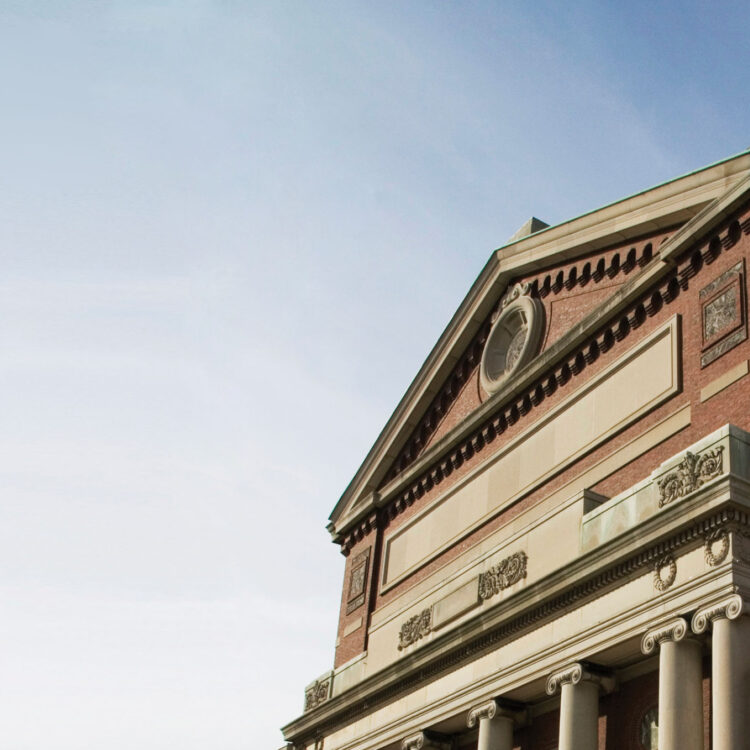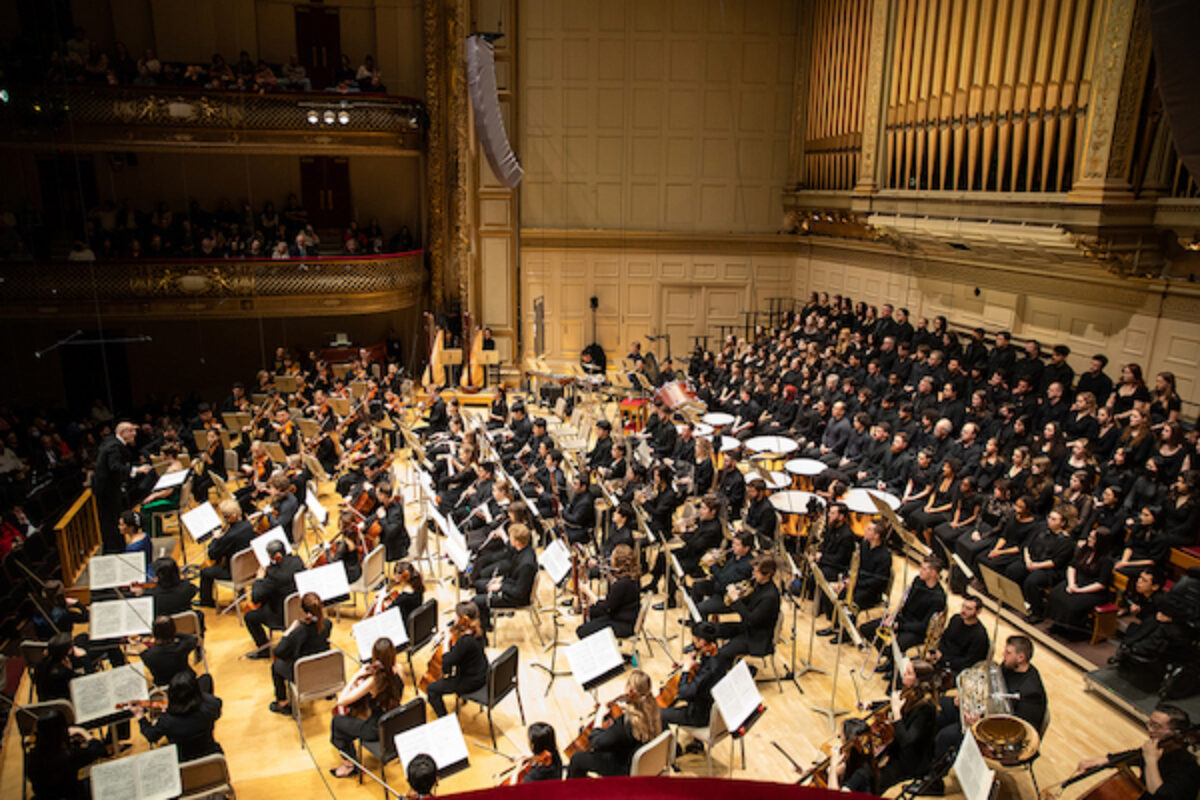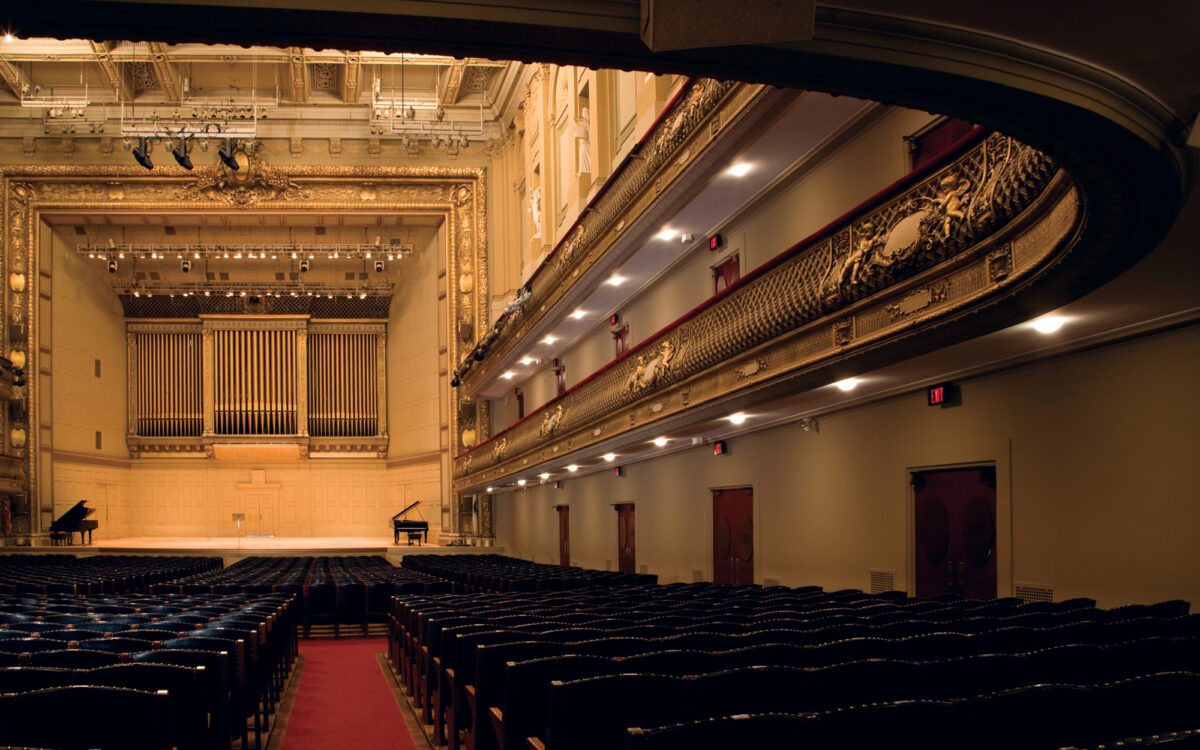BU at Symphony Hall

Symphony Hall
Symphony Hall, Boston, MA
- Boston University Symphony Orchestra & Boston University Symphonic Chorus, led by conductor Daniel Parsley, perform Leonard Bernstein’s Chichester Psalms. Featuring countertenor Sergio Savala (CFA’26).
- Boston University Wind Ensemble with conductor Kenneth Amis (CFA’91, BUTI’86,’87) performs Arnold Rosner’s Symphony No. 8, Op. 84, Trinity
- Boston University Symphony Orchestra, with conductor Sarah Ioannides, performs Richard Strauss’ Suite from Der Rosenkavalier, Op. 59 and Maurice Ravel’s Daphnis et Chloé, Suite No. 2 (with Boston University Symphonic Chorus)
Beginning the 2025 Boston University Symphony Hall concert program is the solemnly joyful Chichester Psalms written by Leonard Bernstein (1965). Bernstein took a sabbatical in 1965 from the New York Philharmonic after being heavily affected by the assassination of President John F. Kennedy and the loss of his close friend and composer, Marc Blitzstein. Instead of languishing, Bernstein wrote the Chichester Psalms with a hopeful outlook on life after much tragedy. Arnold Rosner wrote his Symphony No. 8, Op. 84, Trinity (1988) for band with the idea of viewing ideas, mysteries, and thoughts from three different angles in an effort to “derive deeper insights or simply confusion…”
Following the intermission, we have the unique duality of romanticism at its height: Strauss, with a Suite from his fifth opera which captured the hearts of opera-lovers, and Ravel, celebrating 150 years since his birth. Strauss, like Ravel, used melody to depict stories and ideas, otherwise known as “leitmotifs.” The Suite from Der Rosenkavalier, Op. 59, (1911) is also heavily focused around dance, as Strauss wrote his opera Der Rosenkavalier with the idea of the waltzes from Mozart’s time. Ravel’s Daphnis et Chloé Suite no. 2 (1912) is a story that revolves around the two pastoral lovers, Daphnis and Chloé, exploring the importance of melody and dance forms as Ravel was fascinated with both.



